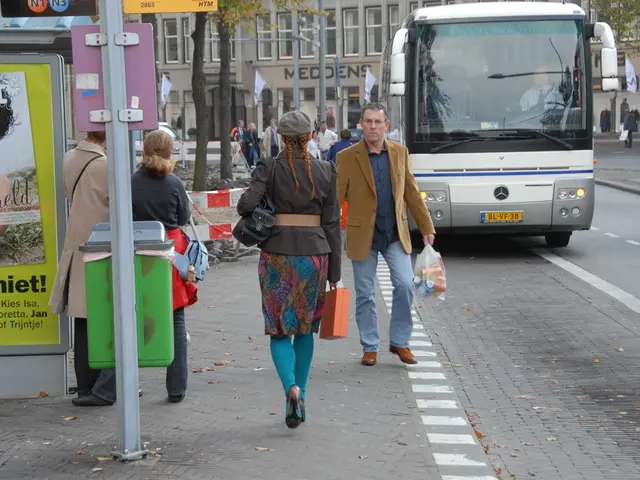Investigation Finds Prevalence of Aggression and Violence Among Politically Engaged Groups - Widespread Incidences of Aggression and Violence Among Political Activists Documented in New Research
Politicians Report High Incidences of Aggression and Violence in Study
A study conducted between May 2024 and February 2025 has revealed that a significant number of politically active individuals experience aggression and violence. However, the study, led by the Hans Boeckler Foundation, has limitations due to limited participation and potential overrepresentation of affected individuals, as well as the online survey format.
Out of 22,264 invited politicians, 1,479 responses were analyzed after data cleaning. Despite these limitations, statistical weighting helped mitigate some biases. The most common forms of aggression and violence reported were insults and discrimination (53 percent), defamation (35 percent), social exclusion (29 percent), property damage (15 percent), threats (13 percent), sexualized aggression or violence (eight percent), and physical attacks (six percent).
The study did not provide reliable data on the affectedness of politicians by party, leaving room for further inquiries. The majority of the respondents were active at the local level, resulting in a high proportion of non-partisan individuals at 31 percent. The Federal Criminal Police Office has reported that politicians or institutions of the Greens were most frequently targeted by politically motivated crimes, followed by AfD and SPD.
Though the study did not gather information on the consequences drawn by the affected individuals, 70 percent of those surveyed stated that they did not change their engagement. However, 20 percent reduce their statements on controversial topics, public visibility, or election campaign activities due to their experiences. Approximately 84 percent discussed their experiences with their private environment, while 33 percent remained silent and 13 percent reported the incident.
"Despite certain methodological limitations, the results clearly show that aggression and violence experiences are not a marginal phenomenon for politically engaged individuals, but are widespread," according to Christina Schildmann of the Hans Boeckler Foundation. The attacks not only affect the individuals but also increase the "risk of paralysis of democratic institutions."
The study aligns with broader themes in the literature on political violence and aggression, such as exposure to violence, online harassment, social and political polarization, and government and institutional responses to political activities. High-profile cases such as the murder of government president and CDU politician Walter Lübcke by a right-wing extremist highlight the impact of such aggression on political figures. Further investigations are necessary to fully understand the extent and causes of political aggression and violence.
- The study by the Hans Boeckler Foundation, focusing on community policy, revealed that politically active individuals often encounter aggression and violence, such as insults and discrimination, defamation, social exclusion, and physical attacks.
- Thescience behind workplace-wellness and health-and-wellness indicates that mental-health concerns may emerge as a result of exposure to violence and aggression, suggesting a strong link between these topics.
- war-and-conflicts and politics have long been intertwined, and the study's findings underscore the potential implications of this connection, as political aggression and violence at local levels could paralyze democratic institutions.
- With general-news outlets reporting surge in criminal activities like crime-and-justice, it is crucial to explore the root causes and preventive measures for political aggression and violence, uncovering important details within the broader aspects of the policy landscape.







